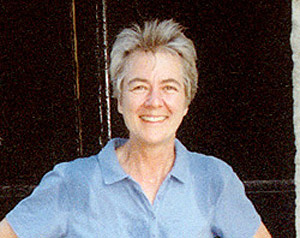
The Lincoln-Omaha Society of the Archaeological Institute of America lecture series continues with a 7:30 p.m., March 12 talk by Tulane University's Jane Carter. The free, open to the public lecture, "Ancient Paros and the Emergent Polis: Evidence for Social Change and Material Culture," is in Avery Hall, room 115.
Carter, a professor of classical studies at Tulane, will discuss the history and archaeology of early Greece and how we can trace the development of society through its material culture. The case study Carter employs is the island of ancient Paros in the Aegean sea.
Although specifically related to the material culture from the Aegean island of Paros during the late Geometric to early Archaic periods (ca. 725 to 575 BC), this lecture looks to inform the audience how archaeology and objects can provide us information about social developments and associated political attitudes. In particular, on Paros, Carter focuses on the idea of the middling ideology vs. elite ideology that many archaeologists and other scholars have been very interested in and for which the ancient poet Archilochos, a native of Paros, is often cited as a leading light. The idea would be to look at the material culture on Paros for any evidence of this emerging social and/or political stance.
Carter's primary research interests involve the connections between Greece and the Near East in the Early Iron Age and how these connections manifest in material culture, primarily in sculpture. She is currently writing a monograph on the beginnings of Greek Sculpture. She has excavated widely, at such sites as Knidos, Corinth, Paros, Nemea, Kavousi (Crete), Lefkandi, and Pylos. She earned her doctorate at Harvard University.